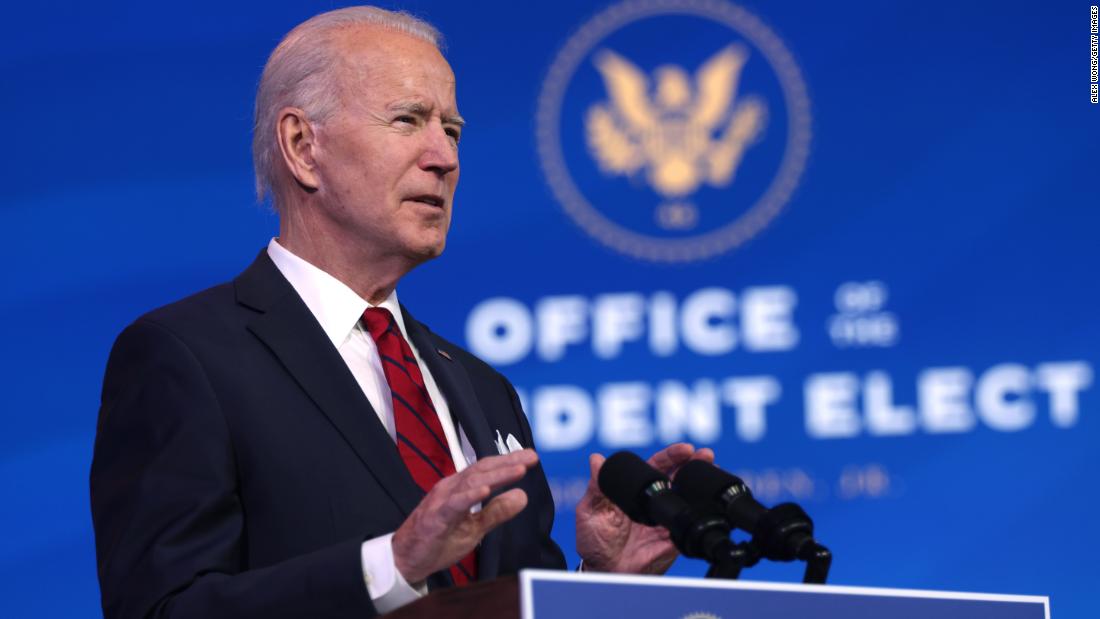The overarching and persistent concern: “They don’t know what they don’t know,” said a source close to the Biden Covid-19 team.
Several officials familiar with the transition said the lack of full cooperation and transparency from the outgoing Trump administration contributed to Biden’s Covid team feeling frustrated and concerned about having a full understanding of the scope of the problems they will face on the first day.
But the president-elect’s team feels ready to fight.
“We are not going to hide the fact that it will be a tremendous effort that will require the hard work of millions of Americans,” said Representative Bill Foster, an Illinois Democrat on the Chamber’s coronavirus subcommittee who participated in briefings with the Biden transition team and he was describing his posture when he took office. “It will not be a magical solution.”
The main concern of Biden’s team at the moment is to supply the vaccine and to avoid the lackluster distribution effort, although new strains of the virus are another persistent concern for the incoming team.
A source familiar with Biden’s effort acknowledged a major gap that the new team will have to address is that there is currently no effective and reliable line of communication between the states and the federal government.
The increase in federal involvement in coronavirus testing and vaccine distribution begins with building communications with each state to better understand its infrastructure and supply challenges, something that is expected to be a focus in the early days of Biden’s presidency.
States are calling for the federal government to release larger batches of vaccines. But it remains unclear whether there will be enough vaccine available to dramatically accelerate the rate at which they can be distributed and administered.
While there is optimism that additional vaccines will soon be approved for use in the United States, including the potential for a Johnson & Johnson single dose vaccine, there are doubts as to whether it can be produced quickly enough to significantly address any potential problems supply.
Foster, the Illinois congressman, said getting information from the Trump administration about delivery schedules and progress in vaccine production “was like pulling teeth.”
“And I understand Biden’s (team’s) frustration, if they were seeing the same kind of resistance that we saw, not in what was hired and promised, but in the real milestones in vaccine production along the way,” he added.
Health officials who are leaving the Trump administration, meanwhile, insist that they have cooperated with Biden’s team and have had hundreds of meetings with Biden’s transition team.
Still, Biden’s team is unlikely to have a full scope of the vaccine production scenario until he takes office on Wednesday.
The president-elect team has expressed concern about trying to understand exactly how vaccine distribution is happening – and what is slowing it down – in all 50 states.
Although Biden’s team is fully aware that it cannot federalize the vaccine distribution process with a snap, the president-elect promised that the federal government will play a much more aggressive role in simplifying vaccine distribution and containment efforts. from Covid.
But even when it comes to some signature promises – like sending the National Guard to administer vaccination sites – it will probably be up to each state to determine what works best for them.
New variants of the coronavirus may prove to be another uncomfortable problem for the next administration.
The worst case scenario for Biden’s team would be a variant that cannot be treated by the currently approved vaccines. But America’s inferior screening systems for monitoring new strains of the virus, combined with the strained relationship with the exit of the Trump administration, add emerging variants to the thorny list of problems that a Biden government will not be able to fully resolve until he takes office. .
“With the worsening pandemic and more contagious variants emerging around the world, this is not the time to lift restrictions on international travel,” White House press secretary Jen Psaki tweeted on Monday. “In fact, we plan to strengthen public health measures in relation to international travel to further mitigate the spread of COVID-19.”
